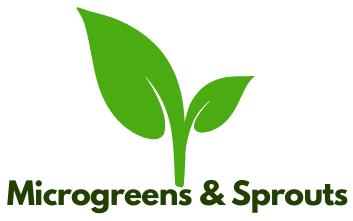Turnip
Turnip Seeds
Turnip seeds are small, round seeds used primarily for growing turnip sprouts and turnip greens. When sprouted, they produce crisp, mildly peppery sprouts that add a fresh and slightly spicy flavor to salads, sandwiches, and other dishes.
History of the Seed
Turnips have been cultivated for thousands of years, originating from Europe and Asia. The seeds have been used historically not only for growing mature turnip roots but also for sprouting, which has gained popularity as a nutritious addition to modern diets.
Nutritional Information
Turnip sprouts are rich in:
- Vitamins: A, C, K
- Minerals: Calcium, Iron, Potassium, Magnesium
- Fiber
- Antioxidants
- Low in calories and fat
Nutrition Benefits
- Boosts immune system due to high vitamin C content
- Supports bone health with vitamin K and calcium
- Aids digestion through dietary fiber
- Contains antioxidants that help fight free radicals
Sprouting Process and Directions
- Soak: Place 1-2 tablespoons of turnip seeds in a jar or sprouting tray. Cover with water and soak.
- Rinse & Drain: After soaking, rinse the seeds thoroughly and drain all water.
- Repeat Rinse: Rinse and drain seeds 2-3 times daily to prevent mold and promote growth.
- Grow: Keep the seeds in a dark or low-light place at room temperature.
- Harvest: When sprouts reach about 1-2 inches, they are ready to harvest.
Soak Time
6-8 hours (overnight recommended)
Rinse Time
2-3 times daily, each rinse lasting about 30 seconds
Growing Time
4-6 days until sprouts are ready
Harvest Time
Typically day 5 or 6 when sprouts are 1-2 inches long
Yield
From 1 tablespoon of seeds, expect approximately 1-1.5 cups of fresh sprouts
Days to Sprout
2-3 days for initial sprouting, full growth in 5-6 days
Best Growing Methods
- Use a sprouting jar or tray with good drainage
- Maintain room temperature (65°F to 75°F / 18°C to 24°C)
- Avoid direct sunlight during sprouting; light exposure after initial sprout formation enhances chlorophyll development without bitterness
Storage
- Store harvested sprouts in a sealed container in the refrigerator
- Use within 3-5 days for best freshness and nutrient retention
Using the Ready Sprouts
- Add to salads, sandwiches, wraps, and smoothies
- Garnish soups or main dishes for added texture and nutrition
- Can be lightly sautéed but best consumed raw to retain nutrients
Helpful Tips
- Use filtered or distilled water for soaking and rinsing to avoid chemicals that inhibit sprouting
- Ensure proper drainage to prevent mold growth
- If sprouts develop an off smell or discoloration, discard immediately
Did You Know
Turnip sprouts contain natural compounds called glucosinolates which support liver detoxification and may have anticancer properties.
